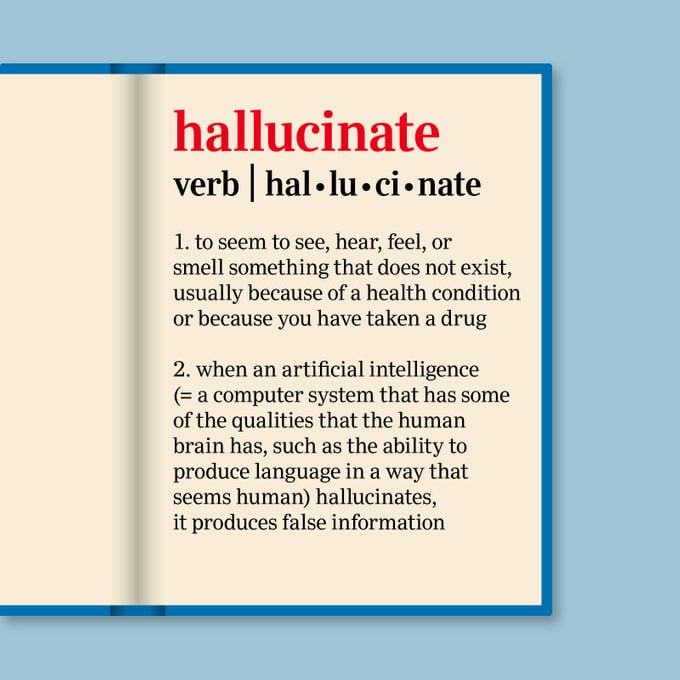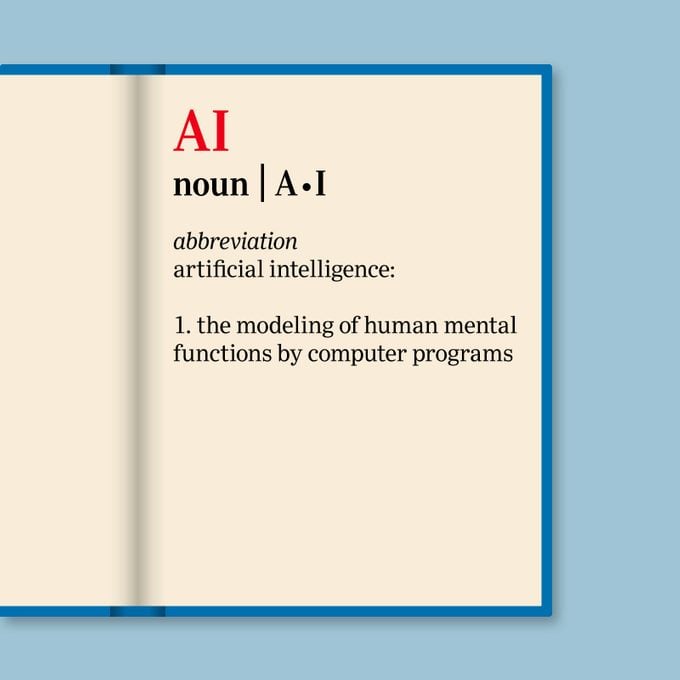Since Scrabble adopted an official lexicon in 1978, one thing has been constant: People have never stopped arguing about what is or isn’t a word.
Players have defended the game by noting that its letter strings—from AA (a kind of Hawaiian lava) to ZZZ (an interjection for sleep)—could be found in a bunch of standard North American dictionaries, books that have been used through the years to compile and revise Scrabble’s tournament word list. But after an update last month introduced dozens of suspect words, riling up the community of competitive players, that’s becoming harder to do.
The linguistic tumult began in September, when NASPA Games, the organization that maintains the word list used in club and tournament Scrabble, published a draft of its update. The NASPA list includes all of the words in the Official Scrabble Players Dictionary, the go-to source for living-room and app players in North America, plus a lot more. Although the seventh edition of the OSPD, which I wrote about last year, ushered in more than 500 newbies, NASPA added more than 4,700.
The big initial story was a flip-flop: NASPA said it was reinstating more than 100 of around 250 slurs removed in 2020 amid a fractious debate prompted by the murder of George Floyd and the Black Lives Matter protests. The slurs were deleted according to two standards the group created: strict (a word is judged by all dictionary sources to be at least “often offensive”) and less-strict (a word is at most only “sometimes offensive” and/or has an alternative, inoffensive meaning). But the less-strict standard now “seemed too far removed from our original intention,” NASPA chief executive John Chew told me in an email. So the group re-added words such as SPAZ, GOY, REDNECK, GREYBEARD, and TWAT. “We don’t like removing words from play,” Chew said.
Some Scrabble experts, though, were less concerned with definitional hairsplitting than the optics of retreating from a moral stand. “The fact that this issue is being cast back into the limelight, and that players now have to relearn a set of words they are now programmed to know as unacceptable slurs, is completely counterproductive to the initial mission of expurgation—namely, getting rid of these slurs so people wouldn’t have to encounter or think about them,” Mack Meller, the No. 3–ranked player in North America, said in an email. Top-ranked Josh Sokol, who in July won the 2023 North American championship run by NASPA, told me, “Nobody was asking to reinstate half of the slurs. Nobody.”
But the slurs were just a warmup act. When players, including me, started combing the list of additions of words up to 15 letters long—the OSPD stops at eight—they found a bunch of head-scratching stuff, mostly involving the inflected forms of words, with the plural endings -s and -es and the comparative and superlative endings -er, -est, -ier, and -iest.
Inflections can be tricky. Dictionaries have rarely listed every inflected form of root words—in the print age, for reasons of space and expense; now, online, because of convention. So Chew and his colleagues on NASPA’s dictionary committee did what Scrabble players have done since the first OSPD was published by Merriam-Webster Inc. 45 years ago: They tried to apply rules enumerated by dictionaries to guide decisions on the validity of a word.
That’s a sensible approach, and NASPA spent hundreds of hours working on the update; a report to players cites numerous dictionary sources and drops authoritative-sounding terms like cutback plural and suffixal identity. Chew, thanks in part to his Scrabble work, was recently named editor of a planned dictionary of Canadian English. But he’s not a professional lexicographer, and NASPA didn’t consult any lexicographers to vet its list. As a result, pro lexicographers told me, the group committed errors in assumption and interpretation about dictionary practices, with some lexically comical results.
Take ROUXES, which NASPA added as a plural of the French-derived cooking agent roux. While Merriam-Webster and four other Scrabble source dictionaries explicitly state that the plural of roux is roux, the fourth edition of Webster’s New World College Dictionary, published in 1999, does not specify a plural.* Chew told me that dictionary’s front-matter rule regarding plurals of words ending in -s, -x, -z, and -sh is “extremely systematic” and calls for an -es ending when no plural is specified, which “unambiguously supports ROUXES.”
Steve Kleinedler, the managing editor of the fifth edition of Webster’s New World (2014), said NASPA’s interpretation is incorrect.* That particular rule about plurals, he explained, is intended for words that end in the sibilant sounds of the letters—like box or tax—not for French-derived words in which the x is silent. “They’re reading way too much in the front matter of a collegiate dictionary that is simplifying broadly so that it’s not bogged down in describing a handful of edge cases,” Kleinedler emailed. “I don’t think this (mis)reading of Webster’s New World should be taken as a basis for adding words.”
Or consider FECESES. According to NASPA, it was added because the second edition of the Canadian Oxford Dictionary (2005) doesn’t list a plural for feces, even though numerous other dictionaries specify, and common sense confirms, that feces is a plural noun. In his email, Chew said that when there is doubt about implied inflections, “we look for credible published citations to support them.” In a database for members, NASPA lists three citations for FECESES: a story in Fox News (the only Google hit I found from mainstream media), a passage in a textbook about Japanese marine life, and a 1934 article in a magazine about fox and fur ranching.
Lexicographers use examples of words in the wild to help determine whether and when a term should be entered into a dictionary. The general principle: widespread use in professionally edited publications over a long period of time. “As lexicographers know too well, you can find just about any form out there if you look long enough, but that doesn’t necessarily make the form dictionary-worthy,” Ben Zimmer, the language columnist for the Wall Street Journal and a former editor of American dictionaries at Oxford University Press, told me. A search of the NOW Corpus, a database of online newspapers and magazines that’s updated daily and includes more than 18 billion words, yields zero hits for FECESES. It’s just not a valid word.
Errors have always sneaked into both standard and Scrabble lexicons—around 30 disputed inflections are being removed in this update; Godspeed, NUMBNUTSES.
Ditto for MIREPOIXS, an inferred plural of the borrowed French word meaning a mixture of diced vegetables used in soups and stews; NASPA endorses its addition with a link to an online recipe for “boho carrot ginger seasoning cubes.” And DEBRISES, which is supported by a citation from the American-Eurasian Journal of Agricultural & Environmental Science. And HORSEFEATHERSES, which will be playable because an edition of Webster’s New World doesn’t specify that horsefeathers is a plural noun meaning, um, nonsense.
Other weird inflections—BRUTALER, JUVENILIAS, SUBSPECIESES—are justified because they appear in a drop-down when typed into the search bar on Merriam-Webster’s homepage. But, lexicographers told me, that’s not a reliable guide. “It’s common practice in all sorts of web search architectures to include false positives in the hopes that you’ll funnel users towards valid data,” said Kory Stamper, Dictionary.com’s senior editor of lexicography.
Merriam-Webster senior editor Emily Brewster told me there’s no easy way to determine from the dictionary’s website which inflections editors consider worthy. “Some forms are not included in the drop-down because the entry has not yet been updated,” she said. “Others are included so that users will find an entry, even if we don’t have sufficient evidence to consider the word established and therefore eligible for play” in Scrabble.
Merriam-Webster editor-at-large Peter Sokolowski, a colleague of Brewster’s, said the drop-down is reliable for recent entries, in which inflections are included or omitted as an editorial choice. I asked him about broey, an adjective meaning like a bro, “a young male who is part of a group of similar male friends stereotypically characterized as hearty, athletic, self-confident, party-loving, etc.” Merriam-Webster added broey online in 2018 and to the OSPD last year. NASPA inferred the inflections BROIER and BROIEST. But those words do not appear when typed into the Merriam search bar—because, Sokolowski said, editors specifically decided they’re not established words.
Finally, here’s a “new” “word” that’s prompted a lot of eye-rolling among Scrabblers: GRATINEEED—yes, with three consecutive E’s. NASPA notes that there is an “explicit” entry for the word in the Canadian Oxford, which is true. But a glance at the printed page might signal a problem. Gratinée is spelled with an accent over the first e. The triple-E past tense is entered as gratineéed—with the accent over the second e, suggesting that the first e might be extraneous. In other words, Zimmer told me, it’s probably a typo.
Chew, the NASPA executive, defended the group’s work. Adding words to a list for a board game, he said, is different from entering words in a traditional dictionary. “We have a history of permissivity in our game … in recognizing inflections in the absence of evidence to the contrary,” he said. Because the Scrabble list has grabbed words from differently edited dictionaries over multiple decades, he said, it can be challenging to “create a sense of consistency,” especially “when the needs of our players to know exactly how words are inflected runs up against a regular lexicographer’s need to edit to space and budget.”
“If what regular lexicographers did had direct application to the editing of a tournament word list, then we wouldn’t need to edit our own!” Chew wrote.
But as complicated or inconsistent as grammar and dictionary rules might be, professional lexicographers could help decipher guidelines and evaluate individual words. Until a few years ago, a Merriam-Webster editor reviewed the lists that Scrabble players compiled by scouring dictionary sources. Errors have always sneaked into both standard and Scrabble lexicons—around 30 disputed inflections are being removed in this NASPA update; Godspeed, NUMBNUTSES and RHINOCEROI—but the cooperation gave the game a stamp of authority that amateur word sleuthing lacks.
Another benefit of consulting the pros: combating the impression that competitive Scrabble just makes up words. “I gotta admit that I’m not looking forward to explaining … MIREPOIXS to a new player who already might be predisposed to thinking we play with gibberish,” one top expert, Kenji Matsumoto, wrote on Facebook.
The word fight is a distraction at a time when players are making traction in boosting Scrabble’s popularity online. YouTube content creator Kevin Peterson, who goes by T1J, this month posted an engaging 18-minute video, “I Tried to Master Scrabble in 30 Days.” Josh Sokol, the current champ, describes himself as a “Scrabble influencer” and is building a following for his livestreams and videos. No. 3 Mack Meller also makes videos; he’s currently playing a 100-game match against a Scrabble bot.
The most influential Scrabbler online is 2017 North American champion Will Anderson. His YouTube channel has more than 26,000 subscribers, and one of his videos, “The Greatest Scrabble Player Ever Is Underrated,” has racked up more than 1.2 million views. Anderson, who works for Scopely Inc., the creator of the licensed app Scrabble GO, would like the North American game to abandon NASPA’s proprietary list and adopt the OSPD. He said the Merriam-Webster lexicon is used for around 57 percent of turns played in English on Scrabble GO. A more expansive international-English list published by the British dictionary maker Collins accounts for 42.5 percent. NASPA’s list? Just 0.54 percent.
“Why are we going rogue?” Anderson said of competitive Scrabble, which currently has about 1,000 active tournament players in the United States and Canada. “We are deviating from a standard in widespread use across the country, and even the world, by players we are trying to convert into our ranks.”
Part of the problem is that the Scrabble ranks are fractured. The game’s owner in North America, Hasbro Inc., terminated a license with NASPA in 2021 and has no involvement in tournament play. (It does sponsor an annual youth championship, which, full disclosure, I’ve helped organize the past two years.) NASPA also doesn’t currently have a formal relationship with Merriam-Webster, which is licensed by Hasbro to publish the OSPD. There’s a splinter players organization that uses the pre-2020 NASPA word list with all the slurs. And some events use the Collins list.
NASPA expects its updated lexicon to take effect in tournaments in early 2024. In the meantime, Scrabble players will continue to question—and snark about—spurious words. “I predict that in 10,000 years archaeologists will unearth a copy” of NASPA’s list, said another high-ranking player, Carl Johnson, “and cite HORSEFEATHERSES as a critical moment in the collapse of Western civilization.”
Correction, Nov. 15, 2023: This article originally misstated that the fourth and fifth editions of Webster’s New World College Dictionary were published in 2014 and 2020, respectively.
Adblock test (Why?)





